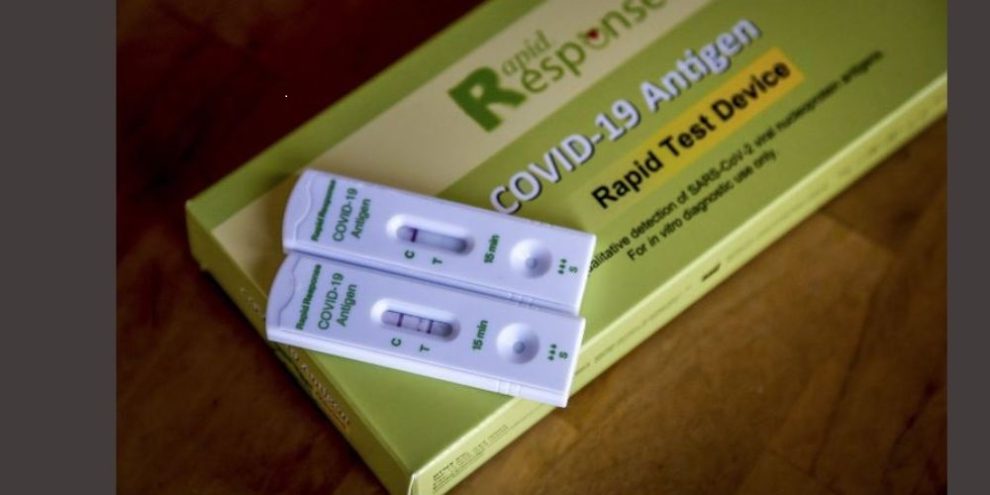
By Adina Bresge
Canadian regulators have approved an updated version of the COVID-19 vaccine as the change of seasons brings a possible new wave of infections.
On Thursday, Health Canada authorized its first bivalent COVID-19 vaccine, which protects against the Omicron variant in addition to the original strain of the novel coronavirus.
Health authorities have signalled that a swift rollout of the new shots from Moderna will be important to fend off an anticipated fall surge.
Here's a look at how bivalent boosters could factor into Canada's COVID-19 response.
WHAT ARE THE BENEFITS OF BIVALENT VACCINES?
Previously, the only COVID-19 vaccines available in Canada were monovalent — tailored solely to the original novel coronavirus.
In addition to defending against this earlier strain, the new shots from Moderna are designed to recognize specific mutations in the spike protein of the Omicron BA.1 subvariant.
In announcing the approval of Moderna's bivalent vaccine, Health Canada said data show the new shot induces significantly higher responses to the Omicron BA.1 variant when compared to its predecessor.
The most common variants in Canada now are all offspring of Omicron, which arrived at the end of 2021 and have spread aggressively since.
WHAT BIVALENT VACCINES WILL BE AVAILABLE IN CANADA?
Canada has purchased 12 million doses of Moderna's version of the Omicron vaccine, which includes swapping some orders of the original Moderna vaccine for the newly adapted version.
Health Canada is currently reviewing another bivalent booster candidate from Pfizer-BioNTech, which submitted its application to the regulator on July 25, about a month after Moderna filed the paperwork for its shot.
The United Kingdom approved Moderna's new vaccine two weeks ago, and the United States Food and Drug Administration gave Moderna and Pfizer-BioNTech's Omicron-fighting shots the green light earlier this week.
The version approved in the U.S. targets newer and more prevalent strains of Omicron than the one submitted for approval in Canada.
Health Canada has asked Moderna and Pfizer-BioNTech to submit an application for the BA. 4 and BA. 5 subvariants as well, and is expecting applications from both companies within the next few weeks.
Health Canada's chief medical advisor Dr. Supriya Sharma told a news conference that the BA.1-targeted vaccine authorized Thursday also generates a "good" immune response against the BA. 4 and BA. 5 strains.
The BA. 5 subvariant currently represents approximately 82 per cent of the virus circulating in Canada, Public Health Agency of Canada data shows. BA. 4 makes up nearly 12 per cent and BA. 1 represents only 0.1 per cent.
WHEN CAN I GET A BIVALENT VACCINE?
Shipments of Moderna's bivalent vaccines are expected to arrive over the next few days, officials said, and there will be enough supply for all Canadians 18 and older to get a dose this fall and winter.
The National Advisory Committee on Immunization recommends that people over the age of 18 should be offered the Omicron-specific booster.
If the newer shot isn't available, the committee says people should instead opt for a booster shot of the original COVID-19 vaccine to ensure timely protection.
NACI generally recommends that people wait six months between shots or COVID-19 infection before getting another COVID-19 vaccine.
WHAT'S NEXT?
A key challenge in COVID-19 control is that the evolution of the virus has far outpaced the time it takes to develop, test, manufacture, review and roll out a vaccine that can counteract the latest mutation, said infectious disease specialist Dr. Zain Chagla.
"By the time the wave occurs — two to three months — that's barely enough to scratch the surface of getting a new vaccine,'' he said in an interview last month. "There is this catch-up game that's occurring all the time.''
He hopes the inaugural rollout of bivalent vaccines could provide a "proof-of-concept'' that will fast-track this process for future iterations of the vaccine, similar to how the flu shot is tweaked every fall to target variants that are circulating.
"There's nothing wrong with this being a flu-season-like model, where people just get updated for a certain amount of time,'' he said.
While we can't expect perfect protection from getting sick, we can have the tools to prevent severe illness among the most vulnerable, he said. "We're lucky to have this technology.''
Banner image: Positive, left, and negative COVID-19 antigen rapid tests are picture in Calgary, Alta., Tuesday, Jan. 4, 2022. Canadian regulators have approved an updated version of the COVID-19 vaccine as the change of seasons looks to bring a new wave of infections. THE CANADIAN PRESS/Jeff McIntosh
-With files from Laura Osman in Ottawa
This report by The Canadian Press was first published Sept. 1, 2022.






